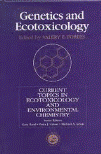Papers in the Biological Sciences

Valery Forbes Publications
Document Type
Article
Date of this Version
1999
Abstract
In many of the world’s habitats abiotic stress is a key force controlling the distribution and abundance of species. As a result of human activities, the role of abiotic stress appears to be increasing in many areas in the form of habitat alteration or destruction, chemical contamination, and large-scale climatic shifts. An important scientific goal, therefore, is to develop approaches for assessing and predicting damage to ecological systems arising from abiotic stress. Moreover, determining how interactions between human-caused stresses and natural environmental stresses impact biological systems is an active area of research. This Invited Feature highlights some of the main issues addressed during a conference held at Roskilde University, Denmark, in June 1997 on ‘‘Studying Stress in Ecological Systems: Pure and Applied Perspectives.’’ I would like to express my sincere appreciation to all of the contributors for taking the opportunity to share their ideas in this forum.
The articles in this feature represent novel insights into the study of stress in different types of ecological systems and at different levels of biological organization. The contributions demonstrate how the effects of stress on natural systems can be effectively examined, how the mechanisms by which stress influences key biological processes can be elucidated, and how knowledge of the role of stress in ecological systems can be applied to solving practical problems. It is my sincere hope that this feature will provide inspiration to those involved in the scientific study of natural and anthropogenic stress as well as those involved in the practices of ecological risk assessment and management.


Comments
Published in Ecological Applications, Volume 9, Issue 2 (May 1999) pp. 429-430
doi: 10.1890/1051-0761(1999)009[0429:SSIESI]2.0.CO;2 Copyright 1999 Ecological Society of America. Used by permission.